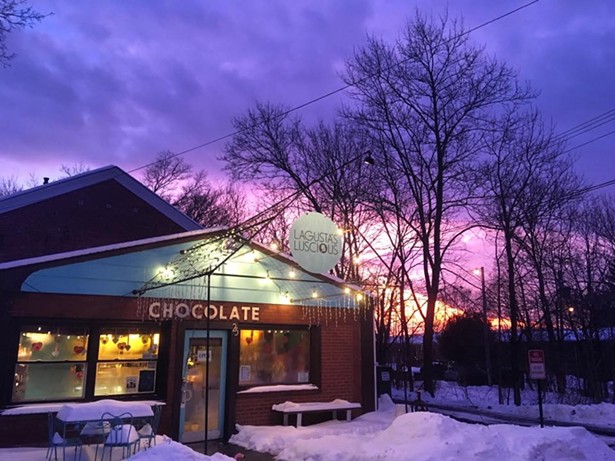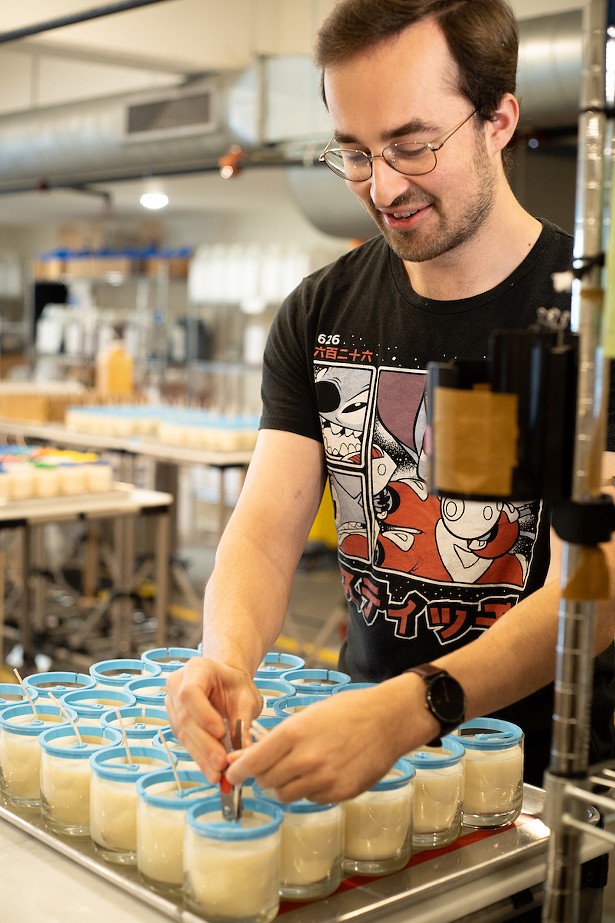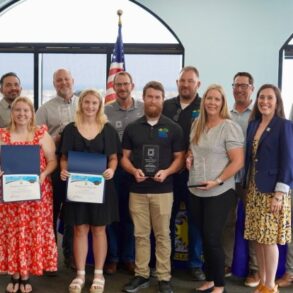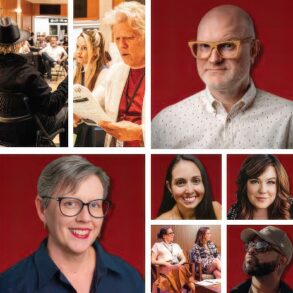This summer, Lagusta Yearwood realized that something needed to change in her business. After 20 years of shipping her vegan chocolates to customers, the owner of Lagusta’s Luscious in New Paltz was seeing a confluence of issues crop up: food costs and the price of shipping itself were skyrocketing, chocolates were melting during shipping at an unheard of rate, and the ethical implications of all the CO2 emitted to ship a small box of vegan treats across the country was starting to feel antithetical to her values as a business owner. At the end of September, she announced on social media that the business was taking the necessary step to stop shipping chocolates all but one week a month.
Amid the constant pressure to participate in a globalized, digital economy, the decision to drastically cut a part of the Lagusta’s Luscious operations that allows the brand to reach a national audience may feel counterintuitive. The prevailing wisdom for most businesses, regardless of their size, is to be everywhere a customer might be, all the time.
While that tactic may work for digital behemoths with economies of scale to match, small business owners like Yearwood are discovering that long-term sustainability in their operations is increasingly about knowing when and how to make the hard decision to let something go.
Choosing Local Over Global
In today’s digital business environment, which is dominated by tech companies offering solutions to reach a global audience of customers, it can be hard for small business owners to resist the allure of online sales.
When Yearwood founded Lagusta’s Luscious in 2003, ecommerce accounted for 90 percent of sales. Over the years, as vegan chocolates became more mainstream and increased tourism to New Paltz translated into more walk-in traffic, the business naturally became more focused on its brick-and-mortar presence. In 2021, as the pandemic’s pressures on food businesses mounted, Yearwood made the decision to combine the chocolate shop and cafe into one space and doubled down on the in-person experience. “Customers have really loved it, but the balance has shifted so much that at this point we’re over 70 percent in-person sales,” she says.
This summer, after the business’s shipping issues reached a fever pitch, Yearwood worked closely with the business’s operations director, bookkeeper, and shipping manager to see how it was negatively affecting the business’s finances, and standing in the way of the direction her wider team wanted to grow. “With the current economic climate, we’re just trying to see how we can maximize value for our customers and really see what makes sense for us,” she says.
By cutting back on shipping, they realized that there were many opportunities to better respond to the needs of their local customers. “We’ve heard from so many customers that they really want more food options from us,” Yearwood says. Holiday shipping typically occupies the team’s three pastry chefs from early autumn through Easter, but now Yearwood says they can focus more of their energy on creating pastries for the cafe. “I feel very lucky, honestly, that we’re in this position where we can shift more to local because that just feels better politically and ethically for us,” she says.
Resisting the “More is More” Philosophy of Business
At the end of 2022, a similar challenge faced Harry Doull, cofounder and steward owner of Keap, a sustainable candle company based in Kingston. At the time, he and his cofounder Stephen Tracy realized that the business had taken on too much complexity. “I’d say the first thing that made it obvious that we had to change was just the financial picture,” Doull says. “If we had another year like 2022, at the end of 2023 we wouldn’t be in business anymore.”
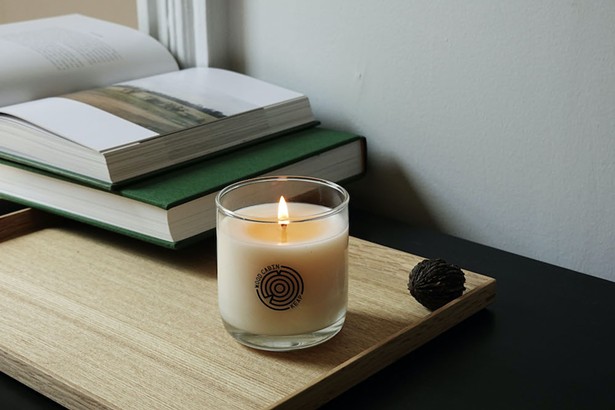
Courtesy Keap
In early 2023, Keap made the decision to radically simplify its offerings. Its candle subscribers now have the option to choose from three scents and non-subscribers can only purchase its most popular signature scent, Wood Cabin.
“Our main business problem is that we’re vertically integrated,” he explains. “We do everything in-house, which in candles is rare.” In addition to developing all its own scents and hand-pouring its clean coconut wax candles, the company has a monthly candle subscription option, sells individual candles through its website and other brick-and-mortar shops, and works with restaurants and hotels to place its candles in brand-aligned spaces where customers can discover them.
While this model allowed them better quality control, a close relationship with customers, and the ability to innovate on the use of sustainable materials, over the years, it had become tempting to expand their offerings to include a dozen scents in different sizes and packagings and even a short-lived wick trimmer.
“We have a super smart team that has just been getting better and more knowledgeable and skilled, and yet we were seeing the direction of things go the wrong way,” says Doull. Costs to produce and ship candles were going up, and quality complaints suddenly reared their heads. Working on new ideas, Doull says, such as developing scents, continuing to pioneer regenerative materials and practices, and working on better pricing fell out of their reach.
The solution they came up with was to radically simplify their offerings. Their monthly candle subscribers would be able to choose from two year-round scents and a seasonal, rotating third, and one-time-purchase customers would only be offered Keap’s most popular scent, Wood Cabin.
“It’s only now, a year-and-a-half later, that I think the outside world is going to finally get to see what we’ve been working on,” says Doull. “We have some new launches for the holidays and the first of several new scents is going to launch this December. That just wouldn’t have happened without this simplification.”
The Intangible Side of Simplifying
Making the decision to stop offering or radically change any revenue-generating part of a small business can be nerve wracking. For both Yearwood and Doull, the business decisions were grounded in the ability to refocus on their own values, the needs of their employees, and their community of customers.
“I’ve definitely spoken to a lot of other businesses in this region, and a lot of them are in that awkward place where their business isn’t quite sustainable at its current scale and something needs to happen to make it a little bit bigger,” says Doull. “We’ve been working at a really unsustainable rate these past few years to make up that difference, but now that I have a child, there’s all of these life things that are really difficult to align with what that kind of work demands.”
While large companies are often incentivized solely by profits, small business owners, who pour their whole selves into their businesses day in and day out, have the power to make a real impact in their communities through decisions that reflect their personal ethics and the future they want to help build.
“I think that’s what this climate change moment is kind of about,” says Yearwood. “How can we kind of begin to think about what we want to see in our communities, and what we want to support? I feel very cautious of the business that I’ve built up for years, but it feels really great that we’re able to take it this way.”
This post was originally published on this site be sure to check out more of their content




